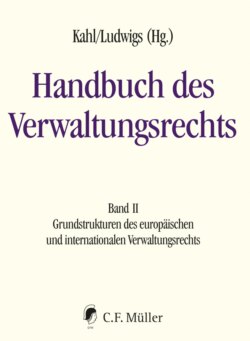| 1. | This article examines the Europeanisation of administrative law scholarship in Germany. It focuses on statements from the early 1950s onwards concerning the influence – in the sense of establishment, transformation, effect, and reinterpretation – of European supranational law on German administrative law (par. 3 et seq.). |
| 2. | The article considers the contribution of an avant-garde of the 1950s, observers who also participated in the negotiating delegations for the newly established organisations or who were particularly sensitive to such promising new developments (par. 10 et seqq.). This first period was followed by an appropriation of Community law which, initially accompanied by positional struggles in the public law community, can be dated from the founding years of the European Economic Community and the Atomic Energy Community (1957/60) to the conclusion of the Single European Act (1986). It is characterised by an increasing number of publications (including formative monographs), efforts to promote comparative law and the determination of a position within the framework of academic conferences (par. 21 et seqq.). The third period of reception and creation (1985 to 2005), on which most studies in European legal history focus, is characterised by the idea of a European administrative law, the thematic differentiation and the broad recognition of the topos of Europeanisation (par. 38 et seqq.). |
| 3. | Scholars of administrative law in the 1950s and 1960s, of whom there were far fewer than nowadays, recognised that the founding of the European Coal and Steel Community “changed something” in law. Lawyers, including those of the older generation, published articles on this subject from their previous experience, even though international law experts were still working on the subject and it was by no means clear whether the Communities even constituted modernised forms of international state cooperation (par. 52). |
| 4. | During the foundational period of the European Communities, German scholars of administrative law were mainly concerned with reconstructing the rule of law. This specific German condition is sidelined by the fact – now often overlooked in anachronistic rear projections – that until the 1970s, the European Coal and Steel Community and the Communities as a whole did not have the dominant, representative position as an expression of organised Europe but instead stood alongside numerous other organisations (par. 52). |
| 5. | A perspective for a constitutional framework within the Communities themselves became apparent only in the second half of the 1970s, as European fundamental rights were guaranteed and legally applicable principles of a European constitutional law – foremost the rule of law – emerged. As a result, the Europeanisation of German administrative law could be accepted (par. 52). |
| 6. | The contribution‘s main thesis is that the representatives of the scholarship of administrative law only turned to Community law and “Europeanisation”, both internally and in legal practice, after the majority of administrative law scholars were able to identify a new “constitutional” reference point for their subject in Community law. In other words, administrative law scholarship continued to pay only peripheral attention to the European Communities after the 1950s because it was dependent on the constitutional debate (par. 8 et seq.). |
| 7. | Europeanisation is omnipresent today; the process has become status quo. From a contemporary perspective, it may be appropriate to understand “Europeanisation” as both a part and a cipher for the efforts to modernise administrative law, i. e. as a metaphor for progress (par. 53). |
